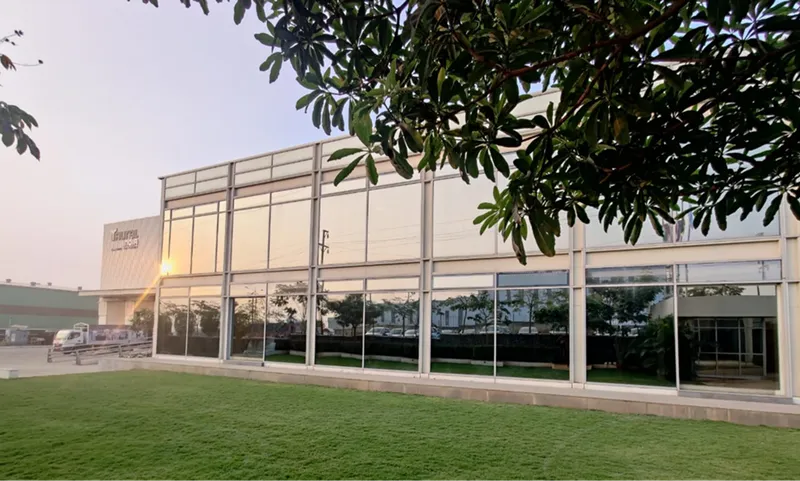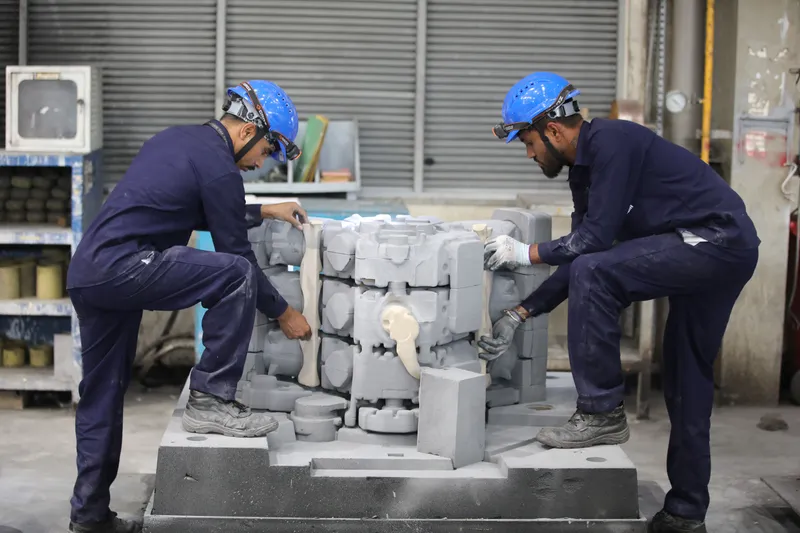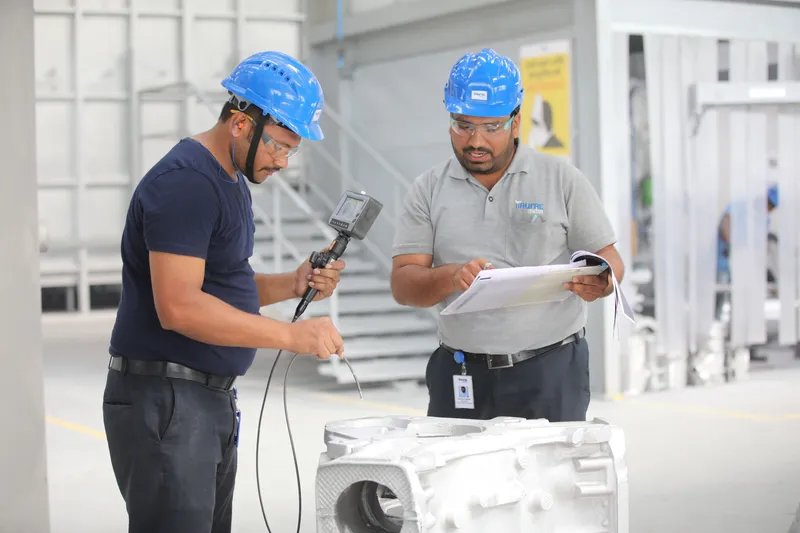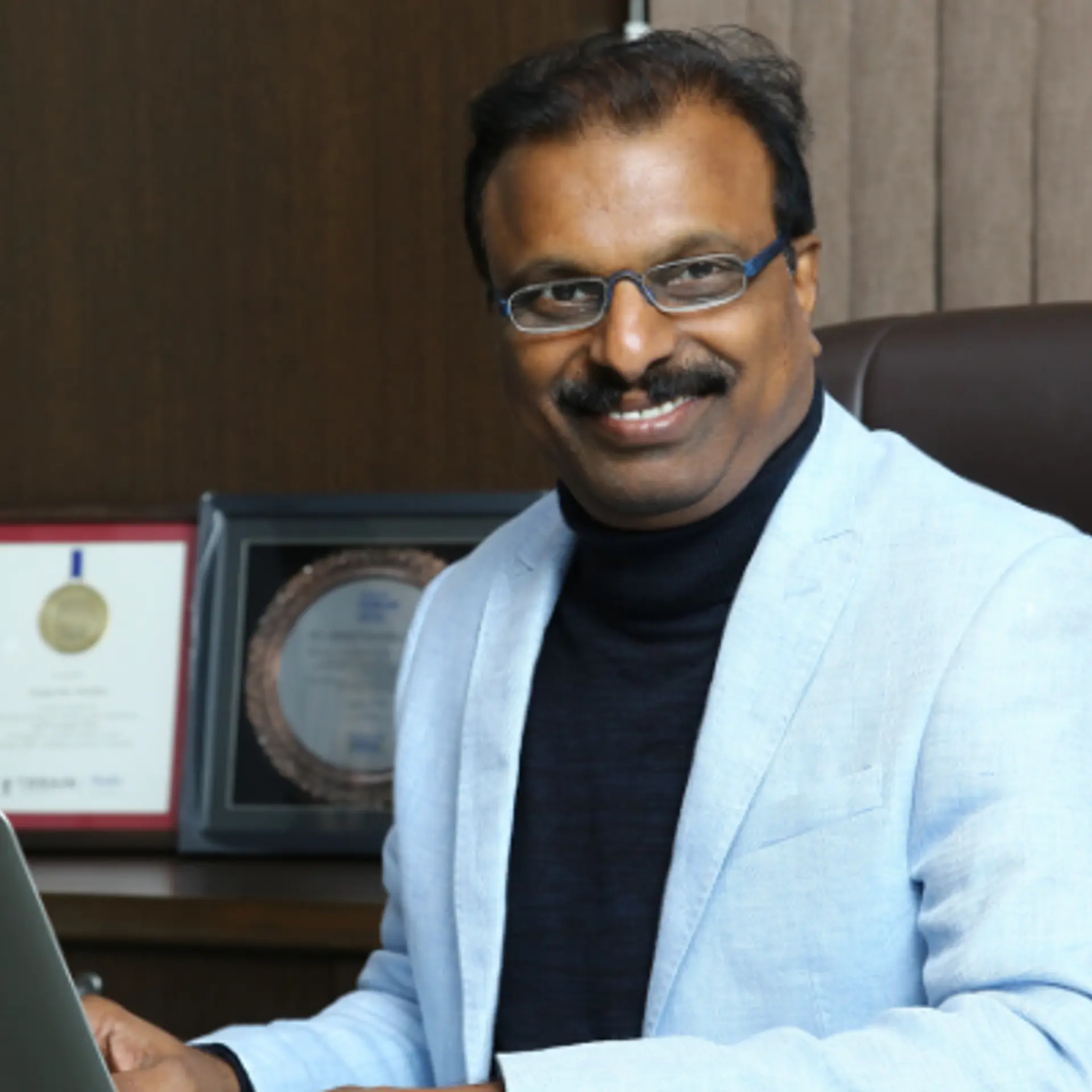Pune-based Taural India is making India self-reliant with aluminium at its core
Pune-headquartered Taural India provides aluminium casting solutions across energy, defence, railways, aerospace, and marine industries.
Bharat Gite, a metallurgist by profession, had a cushy job in Germany when he worked with German automaker BMW and Mahle, a German producer of automotive parts, for its foundry solutions in the early 2010s.
He moved there to do his master’s in foundry technology from RWTH Aachen University after he graduated in metallurgical engineering from the College of Engineering in Pune in 2005.
“When I told my supervisor from RWTH that I wanted to return, he was startled. He was from Austria, which was like two hours away, and still, he had never thought of going back. It wasn't easy to leave that job culture,” says Bharat.
He had a mission behind this move—he wanted to serve the Indian market.
In 2016, Bharat founded Pune-based Taural India to create aluminium casting solutions, which could potentially replace imported products in the energy, defence, healthcare, railways, and aerospace sectors.
India is the second-largest producer of aluminium in the world, but 60% of the demand is met through imports, including aluminium extrusions, rolled goods, foils, and other downstream products like castings.
According to the entrepreneur, not many Indian aluminium casting companies use sand casting technology—a method used for aluminium alloys, where liquid metal is poured into chemical sand moulds. They import these intricate and customised aluminium casting products from China and Europe.

Taural India
Business journey
In 2014, Bharat started with the raw casting of aluminium for both Indian and foreign companies. Operating with a small team, the company lacked quality control systems and machining facilities and could not provide a one-stop solution to MNCs.
Shortly after, he began looking for potential business partners in Europe and established in 2016 as a joint venture with Thoni Alutec—a German company with 50 years of experience in aluminium castings—with an investment of $40 million.
With a facility spanning over 440,000 sq. ft. in Poland, the company offers a wide array of solutions, including mould design, casting, machining, and assembly.

Taural India factory
“They have years of expertise in aluminium casting and focus on environmentally friendly casting processes. They have been an ideal partner for us,” says Bharat.
The founder recalls the journey as not an easy one. Up until 2020, the company operated out of a rented space. The turning point came in August 2020 when it opened its first 24,000-sq mt foundry in Pune.
In the current financial year. Taural India had a turnover of around Rs 200 crore.
Quality systems at every step
Taural’s manufacturing process consists of five steps: creating a 3D computer model, using the model to create a mould out of wood or aluminium, filling the mould with chemical sand to create a negative shape, pouring molten aluminium into the mould, and finally, removing extra material using a gating methodology.
Bharat says the molten aluminium is not entirely pure but mixed with silicon, magnesium, or copper.
“What makes us different is our quality. We have quality systems placed at every step of the process,” he adds.
First, Taural checks the melt quality for required chemistries. Once the casting is done, it undergoes solutionising and annealing processes to make it elastic.
Post this, the company sends the sample for mechanical testing in a metallurgical lab, where its properties are tested and microscopically analysed to examine the bond strength between the metals.
The product also undergoes a helium and air pressure test, where it is pumped with helium and digitally analysed for cracks.
Using a coordinate measuring machine, it examines the finished product to ensure the diameters meet the customers' expectations.
Taural does not see many competitors, as many Indian companies work with die-casting technology instead of sand casting.
“Any business will have competition. We always assume there will be competition. This, however, is a niche market,” says Bharat.
Nonetheless, these businesses will significantly contribute to the country becoming self-reliant when it comes to aluminium.
Globally, some of Taural’s counterparts include Alcast Technologies, Alcoa Corporation, Gibbs Die Casting Corporation, Ryobi Limited, and Walbro LLC.
The WAE Ahead: How this Noida-based company is helping businesses go green
Serving diverse industries
Aluminium is a versatile metal; it is lightweight, durable, and flexible—making it a strategic material to be used in a wide range of industries, including construction, infrastructure, energy, defence, mobile communications, railways, and aerospace. In fact, this ‘green’ metal can be infinitely recycled.
India consumes a relatively small amount—roughly 2.7 kg per capita of aluminium—compared to the global average of 11 kg. Moreover, the consumption reaches 36 kg per capita in developed nations like Germany.
According to a study by AlCircle, India's consumption of aluminium is expected to increase over the next few years at a CAGR of 6.7%, reaching 4.84 million tonnes by 2026–2027.
The report expects the electrical and electronics market to lead aluminium consumption with about 1.69 million tonnes by 2027. It anticipates the transportation sector's use to increase by 7.2% annually, reaching 1.37 million tonnes.

Taural India factory
Seeing how India can benefit more from this metal, Taural aims to become a significant exporter of aluminium products besides supplying to the Indian market.
“We are not only serving the Indian market but also exporting in a big way,” Bharat says, adding that China, the US, Sweden, Switzerland, Germany, Vietnam, and the Middle East are its key export markets.
Its domestic client base includes government entities like Power Grid Corporation of India (PGCIL) and Maharashtra Electricity Generation Board, private players like Tata Power and L&T infrastructure, and foreign companies like ABB, Hitachi, General Electric, and Toshiba, among others.
For the defence sector, Taural India created an import substitute for a cylinder block crankcase (CBCC) of the infantry combat vehicle of the Indian Army (BMP-II) in 2020. For 40 years, the item was imported from Russia.
Using drawings created in the ‘60s, the company successfully reverse-engineered the product. For this, the Society of Indian Defence Manufacturing (SIDM) awarded the National Defence Award for Import Substitution to the company in September 2020.
Challenges and the way ahead
One of the biggest challenges the manufacturing sector faces is retaining the workforce, Bharat says.
Taural aims to open up employment prospects in the manufacturing industry. The company has about 2,000 people associated with it. It employs over 600 individuals and about 100 micro-enterprises as its suppliers and vendors.
Although 2020 was a major turning point in the company’s journey, the pandemic saw Taural’s workforce reduced. Almost 50-70% of its migrant workforce went home when the lockdown restrictions were lifted in June 2020.
“It was difficult to bring them back. We sent buses to Madhya Pradesh and southern parts of Maharashtra. We also sent flight tickets to people living in eastern parts of the country, like Kolkata,” he adds.
According to Bharat, Taural is seeing steady growth over the past few years. The company intends to explore the electric vehicle market, where aluminium may be well utilised.
Besides persuading the government to employ more green metals for infrastructure-related projects, the company is attempting to explore other markets where it can replace heavy metals.
Edited by Suman Singh







